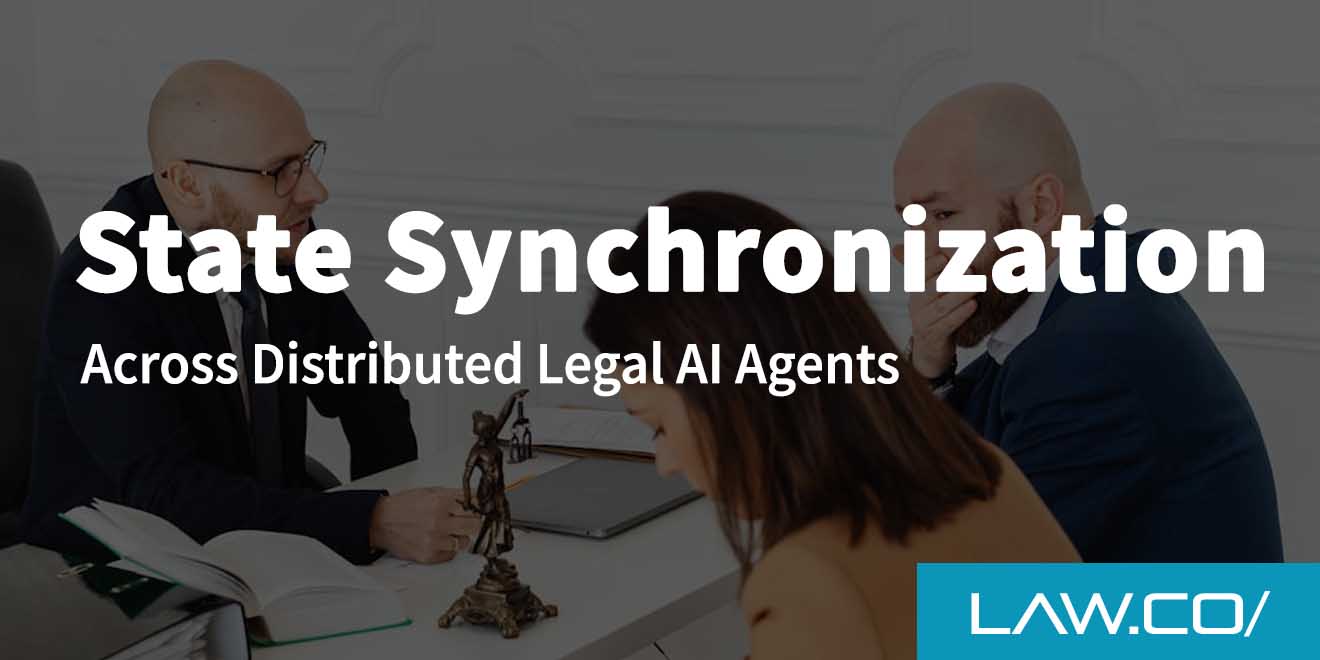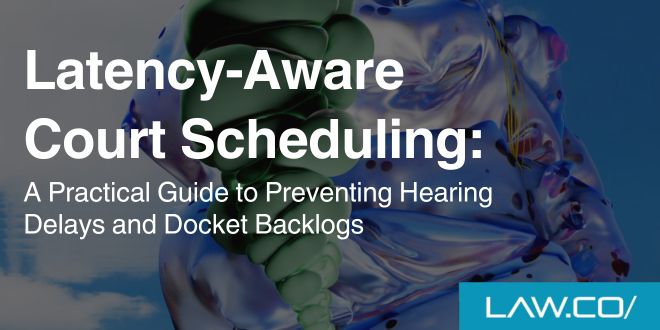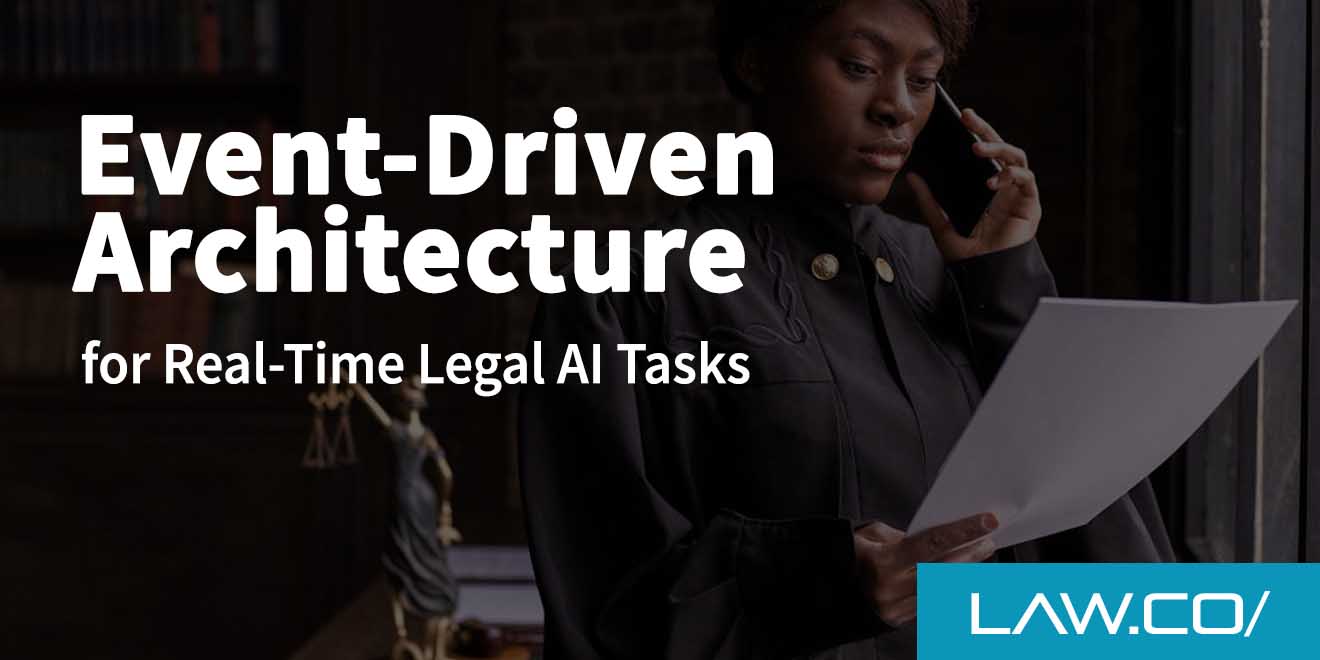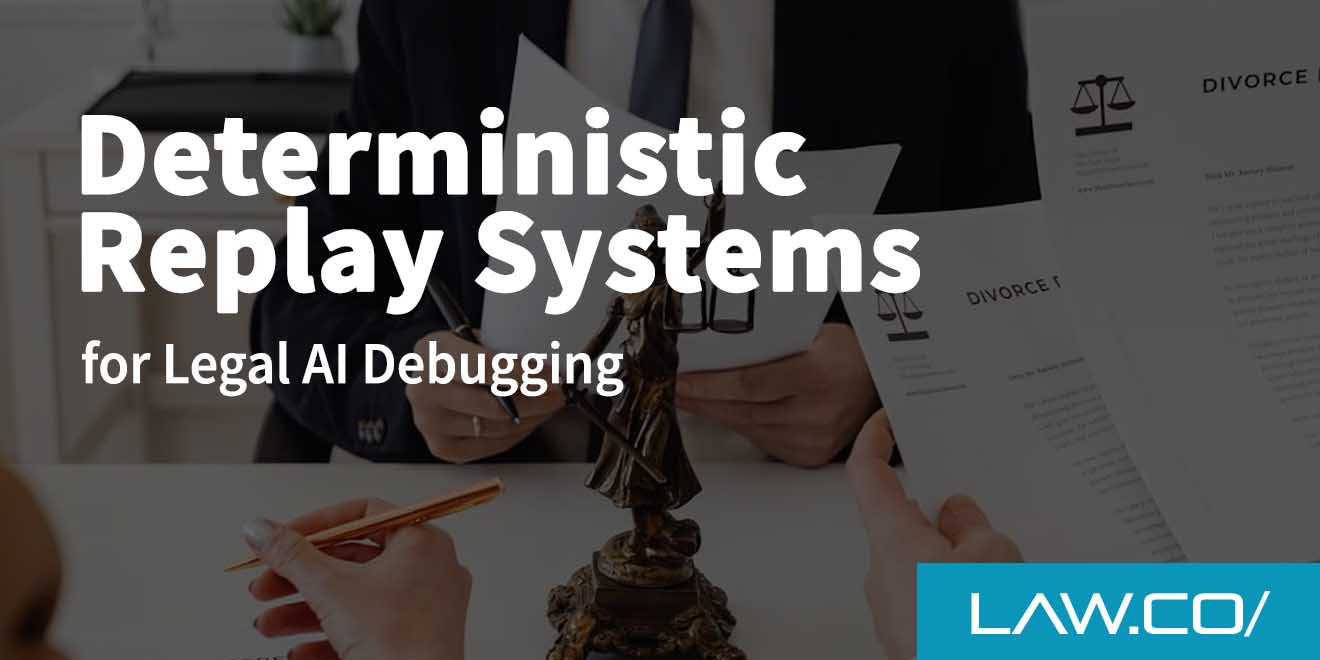

Isolated Runtime Environments for Agentic AI in Law
Have you ever wondered if there’s a way to embrace new AI tools in your law practice without risking sensitive client data? If so, you’re not alone. Plenty of attorneys and firm managers see the promise of AI—specifically, “agentic AI,” which learns dynamically and picks up new patterns without constant human supervision—but worry about mixing these ambitious tools with real-world confidentiality requirements.
That’s exactly where “isolated runtime environments” come in. Think of them as safe zones for your AI processes, carefully walled off from the broader network so you can wield cutting-edge technology with more confidence. Below, we’ll delve into what agentic AI means for law firms, how isolated runtimes actually work, and ways to implement this structure without turning your practice (and your budget) upside down.
Agentic AI: Where Curiosity Meets Legal Work
First things first: what exactly is agentic AI? In plain English, it refers to AI systems that can do more than just follow a strict set of rules. They actively learn, adapt, and make decisions, a bit like interns who ramp up in skill quickly—only these interns don’t go home at the end of the day. For law firms, agentic AI can streamline tasks you’re probably used to delegating to associates or contracted researchers. For instance:
Document Review
Instead of pulling yet another all-nighter sifting through thousands of emails, you can have an AI comb through them, surface the relevant ones, and even learn from your feedback about what’s relevant next time.
Legal Research
Agentic AI systems can spot potential cases or precedents you might have missed and adapt when you clarify what you’re really looking for (“No, I need appellate decisions from the last five years,” or “Focus on intellectual property disputes involving licensing overlaps.”).
Overall, it’s a game-changer—but only if you can trust that your data and your client’s confidential details stay locked down.
The Unfortunate Reality of Law Firm Data Risks

Attorneys juggle sensitive information every day. From personally identifiable data to high-stakes merger details, there’s a reason ethical guidelines emphasize confidentiality so heavily. As you might guess, AI introduces a new dimension to data security: if these systems aren’t darn near airtight, there’s a possibility of data drifting to unauthorized parties.
Cyberattacks aren’t the only worry. Sometimes the biggest risks come from accidental leaks, such as staff members uploading sensitive files to a public AI service that’s not designed for privacy. When we talk about agentic AI, these systems often need a wide net of data to function at their best. Without the right safeguards, you might be giving away the farm.
So, What on Earth Is an Isolated Runtime Environment?
An isolated runtime environment (often called a sandbox) is basically a secure “bubble” where the AI operates. It’s set up so data can’t just wander onto the main network—or out onto the internet at large. Inside this bubble, the AI can access only the information you explicitly permit. It’s akin to letting someone look through one small office room, rather than giving them the keys to the entire building.
Key Features of a Sandboxed Setup Might Include:
- Strict Access Control: Only designated individuals or systems can feed or extract data from the AI. This alone prevents a host of potential disasters.
- Limited Communication Pathways: The AI can’t “phone home” to an external server without your knowledge or permission.
- Real-Time Monitoring: Every request, every piece of data that comes in or out, is logged. That way, if something fishy happens, you’ll know.
Striking a Balance Between Security and Performance
A common worry is that rigid security measures will slow down your operations. After all, AI is supposed to be about efficiency. You don’t want to spend months implementing an airtight environment, only to discover that your brand-new AI tool crawls along at a snail’s pace. The good news is it doesn’t have to be that way.
One approach is to stage how data flows, so the AI receives only curated sets of information. Let’s say you’re dealing with a massive e-discovery project. Instead of dumping your entire client file into the sandbox, you might:
- Perform an initial pass, removing personally identifiable details or items protected by certain privacy laws.
- Provide the remaining data to the AI, focusing on relevant cases and documents.
- Have the AI deliver its findings back to a secure internal location, where you or your team can review them for accuracy, completeness, and confidentiality before they merge into your broader workflow.
This sort of pipeline ensures that the AI can still enjoy a robust dataset without prying into extraneous, hyper-sensitive details.
Ethical Considerations—and Why They Matter
If you practice law in the United States, you’ve likely come across the American Bar Association’s guidelines on technology competence. Lawyers have an obligation to understand the tech they use and how it affects client confidentiality. In other parts of the world, similar rules exist, whether through regulatory bodies or local bar associations. That responsibility is magnified when you deploy an AI tool that can basically “teach itself” over time.
While agentic AI feels futuristic, it doesn’t free you from legal or ethical responsibilities. If a system inadvertently shares protected client info because no one put it in a sandbox, that’s on you. Moreover, if there’s a full-blown data breach—exposing client interactions, financials, or corporate trade secrets—it can devastate your firm’s reputation. You’re not just dealing with potential lawsuits or fines; you could also lose the trust of longstanding clientele.
Learning From Real-Life Use Cases
Not too long ago, I spoke with a modest-sized law firm that wanted to automate document review for standard commercial contracts. They tested an AI solution on a small number of redacted documents, only to discover the tool was pulling references from training data that had nothing to do with those contracts. Why? It was hooked to a broad, external database.
Thankfully, the firm was still in testing mode, so no harm was done. But it was a wake-up call: the AI was “curious,” and it was dipping into areas it wasn’t asked to access. This real story highlights the need for an isolated environment. Once they sandboxed the system, they had complete control over which documents the AI could see. That also meant no weird references to external data sources.
Practical Steps to Get Started
It’s one thing to say, “Use an isolated runtime environment.” But how do you actually set one up if you’re not a tech whiz? Here are some down-to-earth steps you can consider:
- Partner with Specialists: If your firm is small or lacks in-house IT, consider hiring an external cybersecurity or AI specialist. They can help you design a secure environment that fits your specific needs.
- Decide on Your Pilot Project: It’s often best to start small—a discrete research assignment or a single practice area—rather than rolling out AI across your entire firm.
- Train Your People: You can have the best sandbox on the planet, but if attorneys or support staff get sloppy with data management (like emailing confidential attachments to the wrong recipients or letting unauthorized people share login credentials), the sandbox won’t save you. Put policies in place, and stick to them.
- Validate, Validate, Validate: Run test queries to see if the AI is pulling only the data you expect. Check logs to confirm there are no suspicious network calls. Early detection is everything.
The Human Element: Keeping Eyes on the Tech
Even the finest software can’t salvage a situation where humans make casual mistakes. Maybe someone on your team inadvertently drags a file into the wrong folder, or perhaps the AI’s analysis of a complex case is off-base and no one notices in time. That’s why it’s critical to keep a person in the loop—someone who can interpret results, sense when something’s amiss, and step in if the AI seems to be overstepping its bounds.
Building Trust With Your Clients
One often-overlooked benefit of implementing robust security protocols is the trust dividend you gain with current and prospective clients. When you’re able to explain, “Yes, we use advanced AI, but it runs in a tightly controlled environment to protect your data,” people tend to breathe easier. In many scenarios—like handling intellectual property or major corporate deals—clients want to see that you’re forward-thinking enough to use AI, but also conservative enough to keep them protected.
You might find that some clients, especially those in tech-savvy industries, will actually ask whether you’re planning to leverage AI for higher efficiency. If your answer comes paired with a thoughtful explanation of your sandboxed environment, it can set you apart from the competition.

%201.svg)










